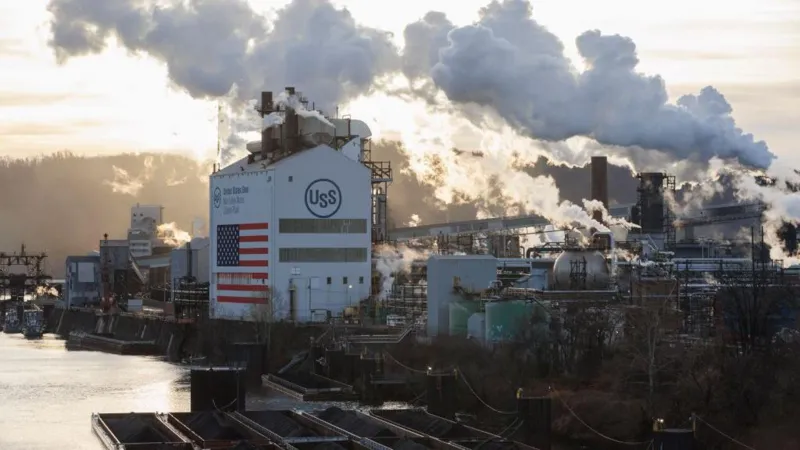Biden Blocks Nippon Steel’s $14.9 Billion Acquisition of U.S. Steel Over National Security Concerns

President Joe Biden has officially blocked Nippon Steel’s $14.9 billion bid to acquire U.S. Steel, citing concerns that foreign ownership of a crucial U.S. industry could pose national security risks. This decision follows a year of political controversy surrounding the deal, which was first announced by Nippon Steel as a potential lifeline for its struggling U.S. counterpart.
The deal faced significant opposition from the United Steelworkers union, whose vocal opposition influenced political pressure in Pennsylvania, a key battleground state for the 2024 presidential election. Biden’s decision to block the transaction, despite some advisors warning it could strain U.S.-Japan relations, highlights the president’s focus on safeguarding American industry and jobs.
While Nippon Steel had denied any intention to reduce production or cut jobs, U.S. Steel had warned that without external investment, it might be forced to close some plants, further intensifying concerns among workers and local politicians. Business groups, however, expressed fears that rejecting the deal could discourage future international investments in the U.S. economy.
In his statement, Biden emphasized the strategic importance of domestic steel production, stating that steel is essential for the nation’s infrastructure, automotive industry, and defense. “Steel production and steelworkers are the backbone of our nation,” Biden stated, underscoring that without a robust domestic steel industry, the U.S. would be less secure.
Though Nippon Steel and U.S. Steel have hinted at potential legal action, the decision aligns with Biden’s broader agenda of protecting American jobs and maintaining national security, reinforcing his administration’s stance on prioritizing U.S. interests, a policy that echoes former President Trump’s “America First” approach.
This controversial move marks a significant turning point in foreign investments within the U.S. steel industry, highlighting the ongoing balancing act between economic relations and national security.





